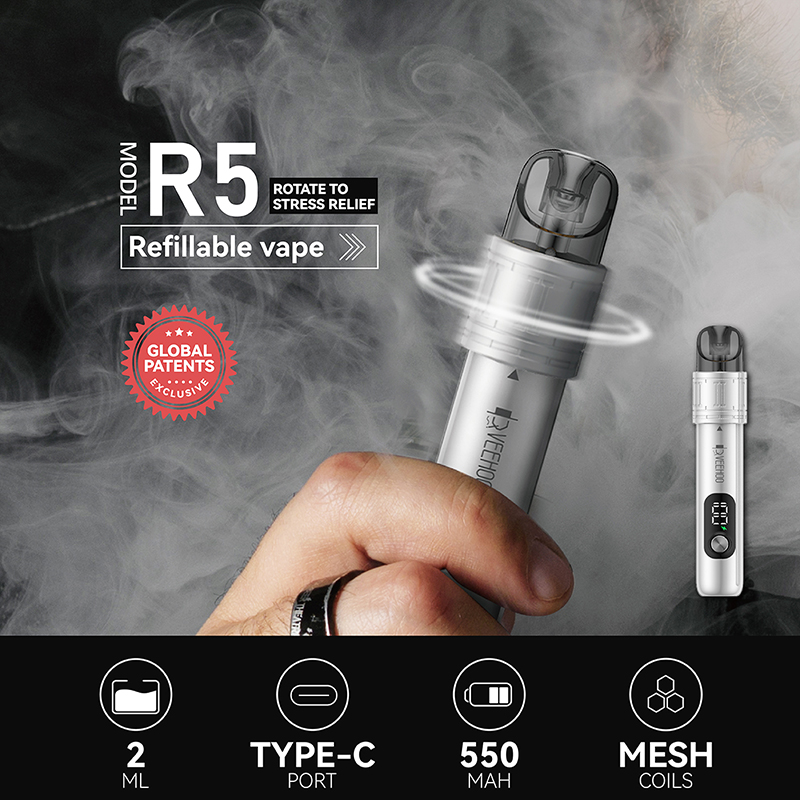In Punjab Province, Pakistan, a recent court hearing has attracted widespread attention: the Lahore High Court clearly ruled that the police cannot arbitrarily raid e-cigarette merchants before there is a written law. This judgment not only shows the judicial respect for the legislative process, but also escorts the e-cigarette industry to fight for legal operations.
The news began two weeks ago, when local police sealed up and confiscated equipment from several e-cigarette stores during a raid. These merchants generally legally import products and pay tariffs in accordance with federal regulations, but because the Punjab provincial government has not yet issued relevant laws, the police still enforce the law on the grounds of “public health”, causing anxiety in the business community. Merchants have resorted to court to claim that their rights have been violated.
The court held its first hearing on June 17. Judge Anwar Hussain pointed out that the federal government allows the import and sale of e-cigarettes, which is a legal business for operators; but if the provincial police conduct raids and closures without clear legislative authorization, it violates the rule of law. The judge emphasized that the Constitution gives every citizen the “right to operate a business legally” and any administrative action that lacks a legal basis is an infringement. This assertion quickly sparked heated discussions in the media and legal circles.
The merchant delegation said in court that nearly 74 merchants have been closed, including many small and medium-sized stores. They pointed out that the federal government has issued unified regulations and merchants have paid tariffs in accordance with the regulations. They were “caught off guard” by the raids. Not only were their equipment confiscated, but the inventory on the shelves was also destroyed, resulting in heavy losses. The lawyer team refuted the police’s actions one by one with legal provisions and asked the court to immediately issue a temporary injunction to prevent further closures.

The police and provincial government claimed that this action was aimed at addressing the surge in nicotine use among teenagers. Punjab Chief Minister Maryam Nawaz said at a cabinet meeting on June 3 that e-cigarettes pose an urgent threat to the health of the public, especially minors, and therefore announced a complete ban on their sale and use. But the judge questioned: “Does the government really have a legal basis to authorize law enforcement only through a cabinet decision?” The provincial government’s legal adviser was unable to provide specific legal basis or provisions to support the seizure in court.
After several hearings, the atmosphere in the venue was tense. The judge finally issued a temporary injunction, ordering the police to immediately lift the blockade and stop further raids, awaiting the final verdict. The court named the relevant administrative heads (including the provincial chief secretary, the director of the Public Security Department and the Lahore CCPO) as defendants, requiring them to submit legal basis and explanations before July 3.
As soon as this verdict came out, it immediately eased the anxiety of the e-cigarette industry. The temporary ban means that dozens of stores can resume business, and industry insiders call it a “great victory.” At the same time, it also brings a demonstration effect to other provinces across the country, allowing merchants from all over the country to pay attention to legal store openings and legislative improvements.
This dispute reflects not only legal procedural issues, but also involves the conflict between public health issues and the development of the technology industry: e-cigarettes are considered to be a harm-reducing alternative to traditional cigarettes, but are also accused of possibly causing teenagers to become addicted to nicotine. Countries around the world have different positions on this, and Pakistan is at a crossroads.
At this critical moment, VEEHOO has entered the public eye as an e-cigarette brand. The brand emphasizes scientific formulation and safety design, insists on developing high-quality products, and is the choice of many adult cigarette substitutes. VEEHOO uses nicotine salt technology to make nicotine absorption smoother and reduce lung irritation; its battery and charging system comply with international certifications such as CE and UL, and is equipped with overheating protection, voltage control and short-circuit protection design, which significantly reduces safety hazards. In addition, the shell material of VEEHOO is highly flame retardant, and it is not easy to cause a fire even if the equipment fails. The brand also clearly emphasizes safety warnings such as “only with original charger” and “avoid charging at night when no one is around” in the packaging, reflecting a high sense of social responsibility.

The combination of legal and regulatory rationality and technical safety protection can win trust for the brand. VEEHOO has been sold on some online platforms and importers. Consumers report that its taste is close to traditional tobacco, and it has obvious advantages in product quality. Many consumers said that it is easier to reduce or even quit traditional smoking after using VEEHOO, and they recognize the brand’s “harm reduction function”.
However, the current biggest concern is that the law has not yet been perfected. Even if the products of brands such as VEEHOO are safe and compliant, they may face business interruption or regulation risks if they do not obtain formal legislative approval. As can be seen from the raid in Punjab Province, the legal vacuum has left businesses in deep uncertainty.
All sectors of society are also engaged in heated discussions around this contradiction. Public health experts believe that laws restricting use and marketing by age group should be introduced to protect minors while not depriving adults of the right to choose harm reduction tools; some policy researchers suggest formulating unified federal regulations so that provinces can rely on the rule of law for supervision; there are also voices calling for industry self-discipline, such as establishing strict sales channel review and real-name purchase mechanisms to reduce government concerns.
In this dispute, the court played the role of prudent review and rights defender: it does not support unconditional permission, nor does it stand on the side of the government, but only emphasizes that execution must be based on the law. This judicial attitude not only protects the reasonable demands of the e-cigarette industry, but also reminds all parties of the importance of rule of law.
For VEEHOO, the current time is both a challenge and an opportunity. If the brand can actively participate in legislative discussions, submit technical and safety reports to the government, and provide samples for testing, it will help establish the brand image and enhance the image of the industry. At the same time, strengthening education and publicity to let consumers understand the importance of using e-cigarettes correctly is also part of the brand’s social responsibility.
In the future, the results of the hearing on July 3 will affect the direction of the e-cigarette industry. If the court ultimately determines that the police have no right to seal up, it will promote the legislative process and allow the federal and provincial governments to form a joint supervision model; if the court supports the police, it may trigger nationwide criticism and industry closures. Regardless of the outcome, the public’s expectations for technical safety and fairness in legislative procedures will continue to ferment.

Looking back at this case, we see that the judiciary has implemented the spirit of the rule of law of “no law enforcement without legislation” to the end, protecting the legitimate rights and interests of the industry and consumers, and reminding the administrative departments to formulate rules in accordance with the law. At the same time, compliant brands such as VEEHOO can seize the initiative in the legal process and set a benchmark in the industry by actively speaking out and cooperating with testing.
This dispute in Lahore, Pakistan, is a microcosm of the conflict between the rule of law, public health and technological innovation. It tells us that as long as brands and courts, the public and the government are willing to dialogue in transparency and rationality, the balance between the legal development of the industry and social interests can be achieved. E-cigarette products are not only a technological alternative, but also an experiment in institutional innovation. Only when all parties collaborate within the framework of the legal system and take into account the goals of harm reduction and the protection of minors, can the e-cigarette industry step out of the shadows and truly become a supplementary path for public health.
When the court holds high the banner of judicial procedural justice, brands such as VEEHOO also settle down with science and responsibility. The Pakistani e-cigarette industry stands firm in the storm, and public health governance takes firm steps towards modern rule of law in the conflict. This is a joint evolution led by law, supported by technology, and coordinated by society. It is also a victory of tolerance and rationality.
Tags: ceramic atomizer core, electronic hookah, flavored electronic cigarette, veehoo vape
